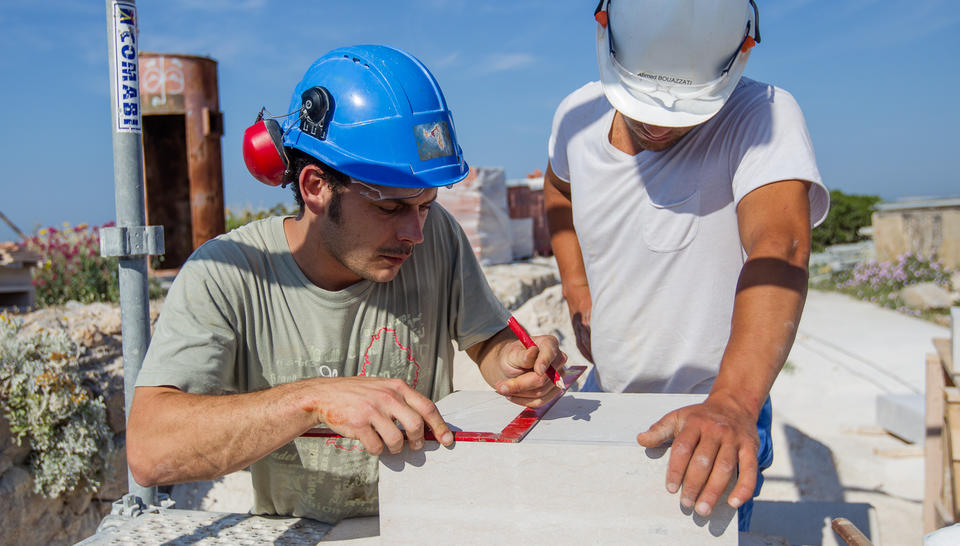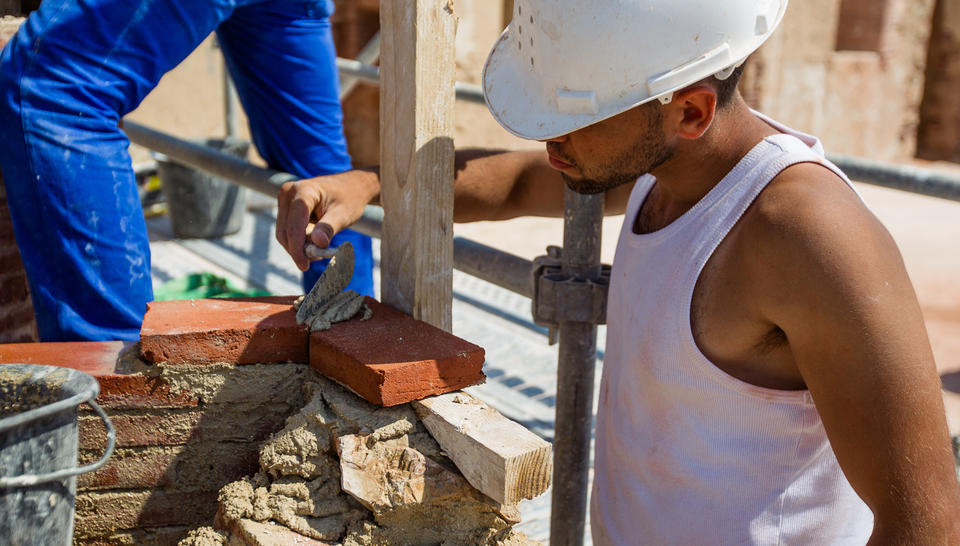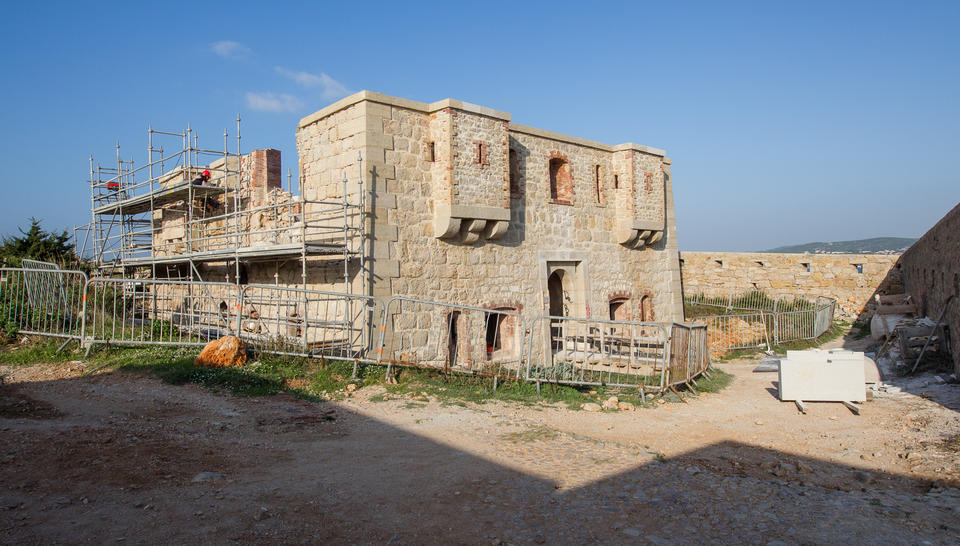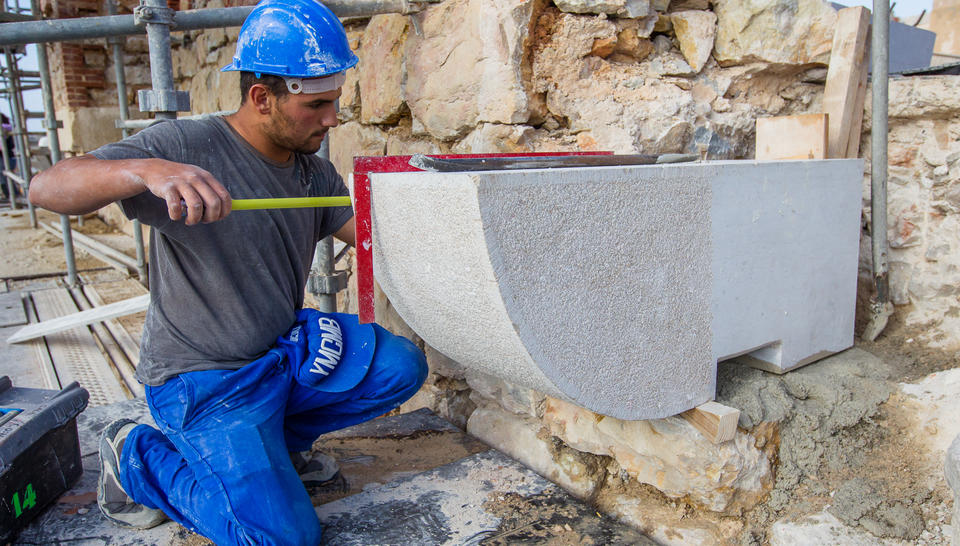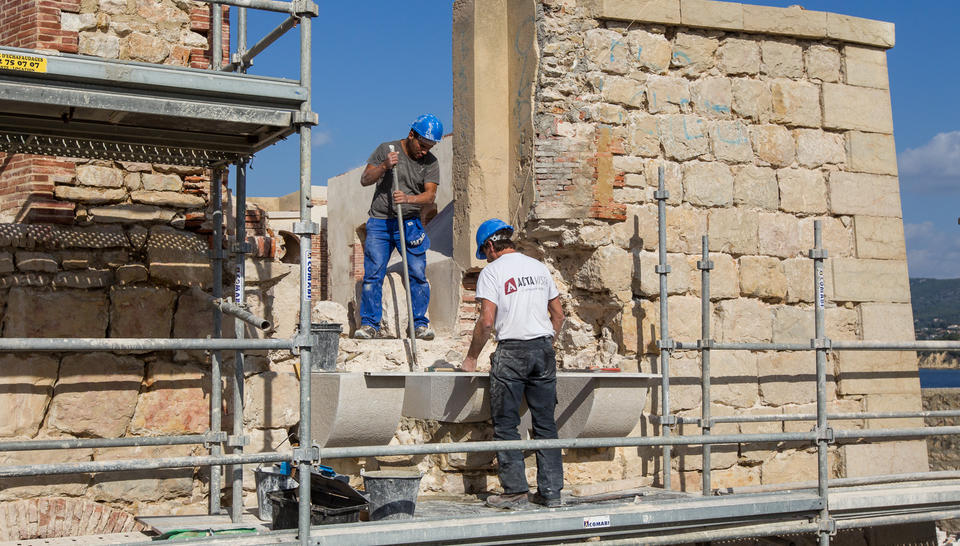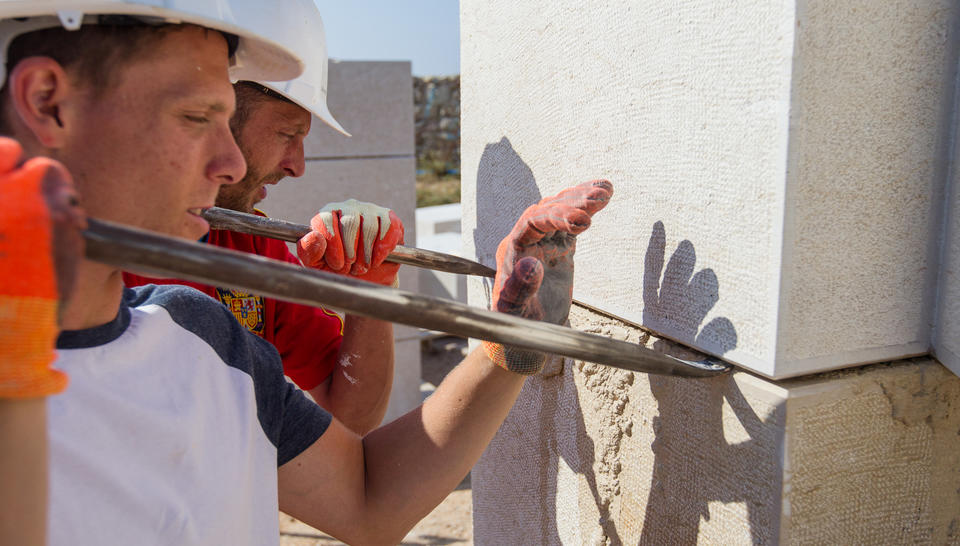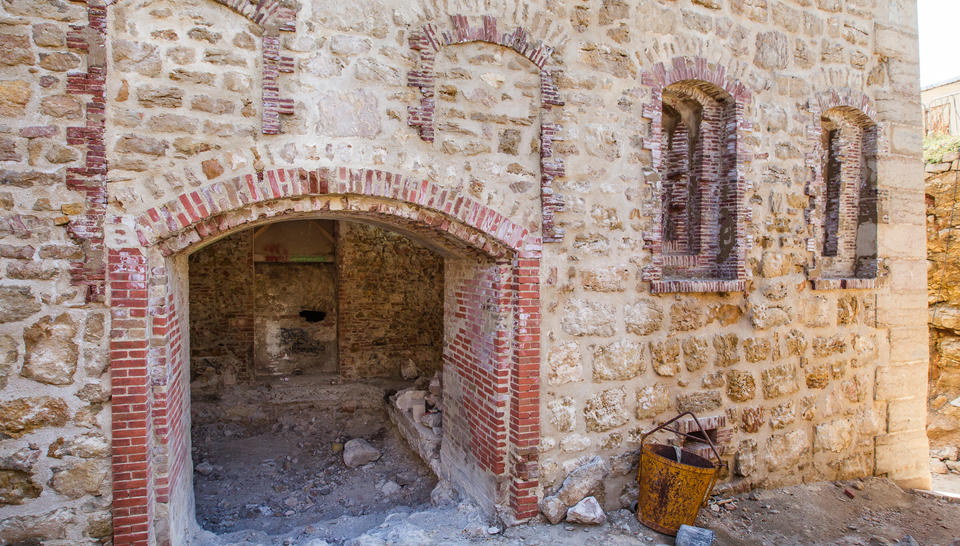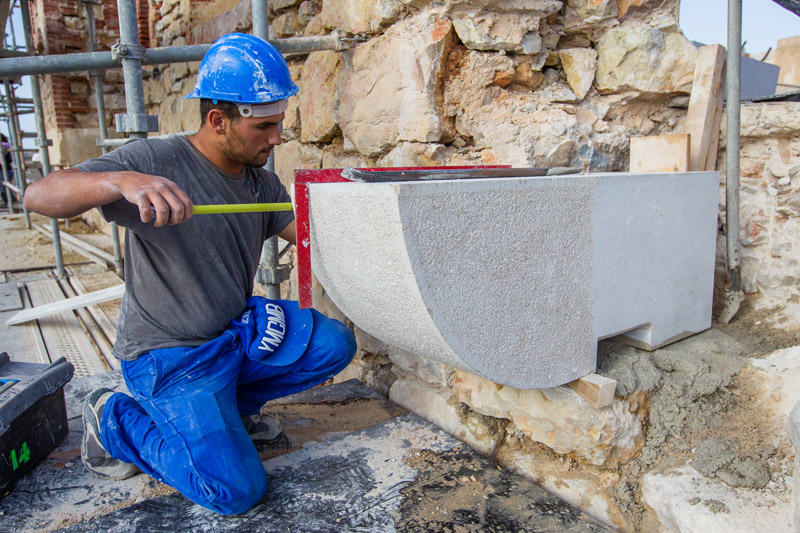
From bricklaying to catering
Employees sign a six-month contract, which is renewed once. They alternate between a 35 hour working week on-site and a 17 hour week at a technical facility specially designed to help them further enhance their learning and get ready for sitting exams. Their sights are set on a vocational level V (equivalent to a CAP or vocational training certificate) qualification endorsed by Afpa (Agence nationale pour la Formation Professionnelle des Adultes – France’s national agency for adult vocational training) and recognized by the Ministry for Work and Employment. Training is based on passing on practical techniques and trying them out, rather than theoretical teaching.
Each employee is supported by a technical supervisor and a project manager-support worker. They monitor and support the employee on their pathway towards getting back to work. The supervisors have a high level of expertise and most have been trained by the Compagnons du Devoir (French organization of craftsmen and artisans). For the first three months, the emphasis is placed on transport, housing and language issues, and self-control difficulties, and on solutions, such as paying the cost of obtaining a driving licence, obtaining a short-term let, taking French lessons, and so on. The following months focus more on the individual’s career plans. The idea is to work on their skills and look into training options for when they leave the scheme.
Building industry trades are a means of rebuilding someone’s life but not necessarily a vocation. 50% of the employees find a job in the building industry when they leave the scheme, while the other 50% secure employment in logistics, security, the care sector and catering, for example. Links are being forged with Veolia so that Acta Vista employees can be hired in shortage occupations in the water and waste management sectors.


